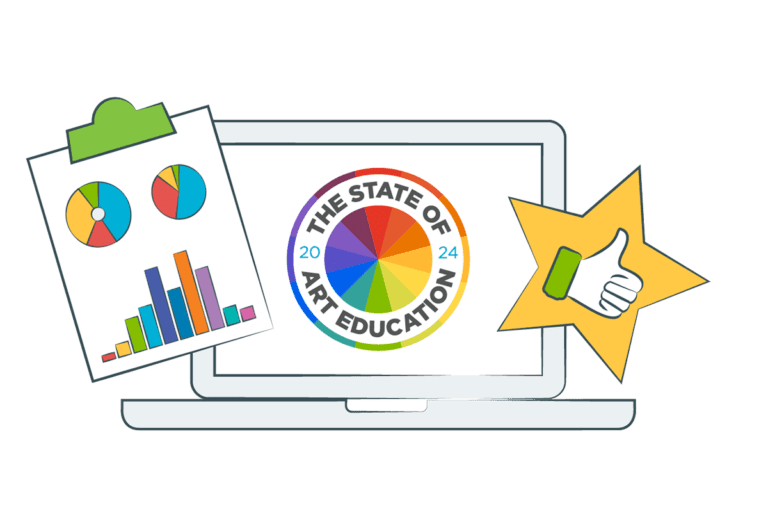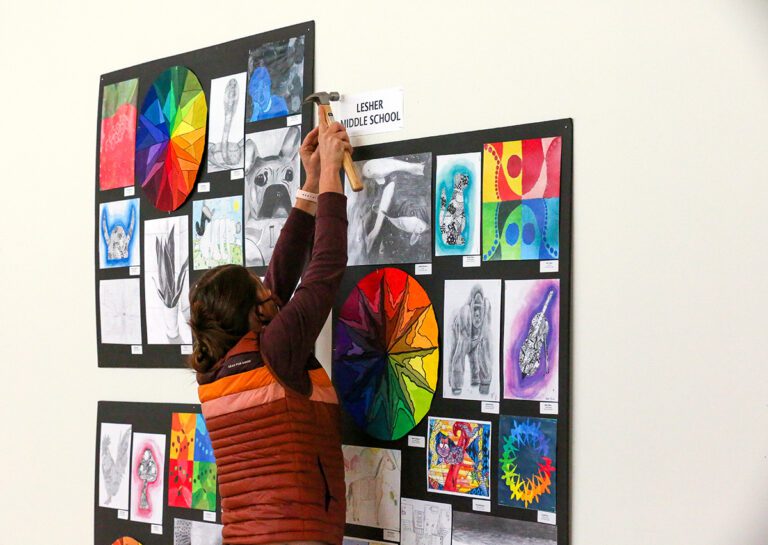When we plan our lessons, we think about the information we want students to know:
- How to mix green
- To remember to draw the ground line
- Why Monet matters
What we don’t often consider is our students’ hearts.

Art is a subject of the soul. It’s passion, love, and emotion in visual form. The push for standardization makes us quantify it and reduce it to something that can be assessed on a standardized test. Memorized, quantifiable information is part of learning, but I sometimes wonder if it can cause us to lose focus on what really matters.
Do we sacrifice building a lifelong love of art in hopes of developing an arbitrary set of skills?
Instead of focusing on the techniques needed to finish the current project, what if we stopped and thought about the feelings and understandings we want our students to walk away with from our programs?

Here is my personal wish list for my students:
- I want my students to feel that art is accessible.
- I want my students to connect to work on a personal level.
- I want my students to tell stories that are important to them.
- I want my students to be inspired.
- I want my students to think like artists.
If we planned with the heart in mind, would our classrooms be more inclusive and welcoming? Would more students continue with art classes through middle school and high school? Would funding for the arts increase?
As teachers, we have to and should teach the quantifiable, but we must never lose sight of the heart. It’s important for all of us to take a moment and reflect on the things that make art unique and so valuable to the human experience. Identify what these things are to you, write them down, and let them flow through everything you do.
If your students could take one thing away from their time in your class what would it be?
Tell us in the comments below!
If you’re looking for even more inspiration on this topic, be sure to sign up for the 2016 Summer Art Ed Now Online Conference. High school teacher and AOE Team Member Tim Bogatz will be sharing practical ideas and advice about finding your passion and purpose in teaching. Walk away inspired to make a lasting influence on your students and your school!
Magazine articles and podcasts are opinions of professional education contributors and do not necessarily represent the position of the Art of Education University (AOEU) or its academic offerings. Contributors use terms in the way they are most often talked about in the scope of their educational experiences.





